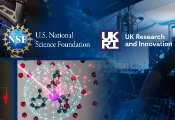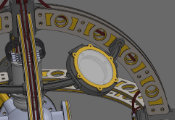Quantum Information
NSF and UKRI Launch $10M Quantum Chemistry Collaborative Research Effort

Industry September 23, 2025
Maryland Quantum-Thermodynamics Hub Secures Funding for Three More Years

Industry September 18, 2025

Industry September 23, 2025

Industry September 18, 2025